39 what is parole
› watchDalida, Alain Delon - Paroles, paroles - YouTube « Paroles paroles » : le tout premier clip de la chanson iconiqueIl aura fallu attendre 46 longues années pour que le clip de « Paroles, paroles » de Dalida ... What is Parole? | LegalMatch What is Parole? Parole is an aspect of criminal sentencing that involves the early release of a defendant. While state laws may vary regarding parole, the convicted person must usually serve at least one third of their original sentence in order to be eligible for parole.
What is parole? - Canada.ca Parole is a carefully constructed bridge between incarceration and return to the community. It is a conditional release, and contributes to the protection of society by allowing some offenders to continue to serve part of their sentence outside of the institution in the community under the supervision of a Correctional Service of Canada (CSC) parole officer, and subject to conditions.

What is parole
Parole legal definition of parole - TheFreeDictionary.com Parole. The conditional release of a person convicted of a crime prior to the expiration of that person's term of imprisonment, subject to both the supervision of the correctional authorities during the remainder of the term and a resumption of the imprisonment upon violation of the conditions imposed. Parole is the early supervised release of ... Nine Things You Probably Didn't Know About Parole | The Marshall Project 6. Parole is not "early release." Many refer to parole as "early release," but the possibility of parole is built into the sentence when the judge hands it down. Judges hand down a range of years, like five-to-10 or two-to-seven. After serving the minimum number of years — or "min" — inmates are eligible for parole. Parole Definition - LawInfo Parole occurs when a prisoner is released early to serve out the remainder of their sentence in the community. Parole can be included as part of the original prison sentence or be granted for demonstrating good behavior. Parole is not available for all criminal offenses. Parole comes with conditions. At a minimum, the parolee must report to a ...
What is parole. What is parole? | Adult Parole Board Parole allows a prisoner to serve part of their sentence of imprisonment in the community. While on parole, a prisoner will be subject to parole conditions and under supervision. Serving part of the prison sentence in the community under parole supports the prisoner to reintegrate into the community with the aim of improving community safety. Parole Definition & Meaning - Merriam-Webster The meaning of PAROLE is a promise made with or confirmed by a pledge of one's honor; especially : the promise of a prisoner of war to fulfill stated conditions in consideration of his release. How to use parole in a sentence. What Is a Parole? - Meaning and Definition - Infotracer Glossary Parole Definition. Parole is a privilege that allows criminals to avoid prison or to be released from prison after only serving a portion of their sentences. One of the objectives of parole is to enable offenders the opportunity to rehabilitate their lives and reintegrate themselves into society. The psychology behind parole is that offenders ... directory.arkansas.gov › agency › department-ofProbation and Parole (DCC) Payments | Arkansas.gov Probation and Parole (DCC) Payments Go to Probation and Parole (DCC) Payments Need help? Chat with Arkansas.gov. Get instant answers to hundreds of questions about ...
How Does Parole Work? - HG.org Parole is a complex system in the penal system that allows convicted prisoners to start a new life with supervision. Historically, the term parole meant by voice or by your word, and that is exactly what it is today. What Is the Difference Between Probation and Parole? What is parole? Parole is a form of conditional release. If you get parole, you will be released from prison before your sentence is complete. However, you will still be in custody. You will just be serving your time in the community. Humanitarian or Significant Public Benefit Parole for Individuals ... Parole ends on the date the parole period expires, is revoked, or when the parolee leaves the United States or obtains an immigration status, whichever happens first. Although parole is temporary in nature, in some instances, a beneficiary may need to remain in the United States beyond the period of authorized parole. Humanitarian Parole | USCIS Parole allows an individual who may be inadmissible or otherwise ineligible for admission into the United States to be in the United States for a temporary period for urgent humanitarian reasons or significant public benefit.
Parole Definition | US Immigration Glossary Parole is a permission granted by the Department of Homeland Security (DHS) to a foreign national that allows them to physically enter the United States yet still be considered to have not legally entered the country. A person paroled into the U.S. is treated in a legal sense as if he or she were still at the border seeking permission to enter ... local12.com › news › localWoman convicted of murder as a teen in Elmwood Place granted ... COLUMBUS, Ohio (WKRC) - After hours of testimony during Mincey Meece's parole hearing, a full board decided, after 26 years, she will walk out of prison. It's a blow to the victim's granddaughter ... What is parole? - LawInfo A parole board decides to release someone on parole, or it is done per statute. For example, the charge an offender is convicted of may require mandatory release or parole. A parolee can have several types of supervision statuses, such as: Active status: This means that the offender must check in with a parole officer Texas Board of Pardons and Paroles What is Parole Page Parole is a privilege, not a right. What is Mandatory Supervision? Mandatory Supervision is a legislatively mandated release of a prisoner to parole supervision when the combination of actual calendar time and good conduct time equal the sentence. Good conduct time is credited to an offender for participating in work and self-improvement programs.
What is Parole? - New York Parole Appeals THE HISTORY OF PAROLE. The Division of Parole was established in the Executive Department on July 1, 1930. At that time, a full-time Board of Parole comprised of three members was created and paroling functions for all the state prisons were transferred from the Department of Corrections to the Division of Parole.
Parole - National Institute of Corrections Parole. Parole, both a procedure by which a board administratively releases inmates from prison as well as a provision for post-release supervision, comes from the French word parol, referring to "word," as in giving one's word of honor or promise. Over time it has come to mean an inmate's promise to conduct him- or herself in a law abiding ...
What is Parole? Parole is a privilege and is only given to prisoners who comply with prison rules, are truly committed to maintaining a positive lifestyle and becoming a contributing member of the community. Common misconceptions about parole Parole is not shortening a prison sentence. Parole is not granted for compassionate reasons.
Grading the parole release systems of all 50 states | Prison Policy ... Grading the parole release systems of all 50 states. From arrest to sentencing, the process of sending someone to prison in America is full of rules and standards meant to guarantee fairness and predictability. An incredible amount of attention is given to the process, and rightly so. But in sharp contrast, the processes for releasing people ...
How Parole Works - United States Department of Justice How Parole Works. Eligible federal prisoners serving sentences of less than 30 years who have committed offenses prior to November of 1987 may, through an application process, receive an initial parole hearing within 120 days of commitment to a federal institution. D.C. Code offenders receive an initial hearing when they are within 9 months of ...
Parole | Wex | US Law | LII / Legal Information Institute Parole is the conditional release of prisoners before they complete their sentence. Paroled prisoners are supervised by a public official, usually called a parole officer. If paroled prisoners violate the conditions of their release, they may be returned to prison. For example, paroled prisoners often must get and keep a job, avoid drugs and ...
Getting parole: Overview - GOV.UK Getting parole means you can leave prison or be released from custody before the end of your sentence. You'll be kept under supervision, known as being 'on licence' or probation. You may be ...
paroles.alabama.govHome - The Alabama Bureau of Pardons and Paroles - Government ... Parole is the investigation into persons who have offended in the past and deciding if they meet the qualifications to be released back into the general population ...
Frequently Asked Questions - United States Department of Justice Parole has a three-fold purpose: (1) through the assistance of the United States Probation Officer, a parolee may obtain help with problems concerning employment, residence, finances, or other personal problems which often trouble a person trying to adjust to life upon release from prison; (2) parole protects society because it helps former ...
Parole - Wikipedia Parole (also known as provisional release or supervised release) is a form of early release of a prison inmate where the prisoner agrees to abide by certain behavioral conditions, including checking-in with their designated parole officers, or else they may be rearrested and returned to prison.
Parole - Definition, Examples, Cases, Processes Parole is the conditional release of an inmate prior to the completion of his prison sentence, after he agrees to follow very specific rules and regulations. While an individual released on parole is considered to have served his sentence, he risks being returned to prison to finish the prison term if he fails to follow the specific conditions set, or to report regularly to his parole officer.
Definition of Parole | Conditions of Parole | Parole Violation | Nolo Parole is a prison inmate's privilege of conditional freedom. The prisoner gets out from behind bars, but has to live up to a series of responsibilities.
PDF WHAT IS PAROLE? - Parole and Probation Administration GRANTED PAROLE? Whenever the Board of Pardons and Parole finds that there is a reasonable probability that, if released, the prisoner will be law-abiding and that the release will not be incompatible with the interest and welfare of society.
Parole Definition - LawInfo Parole occurs when a prisoner is released early to serve out the remainder of their sentence in the community. Parole can be included as part of the original prison sentence or be granted for demonstrating good behavior. Parole is not available for all criminal offenses. Parole comes with conditions. At a minimum, the parolee must report to a ...
Nine Things You Probably Didn't Know About Parole | The Marshall Project 6. Parole is not "early release." Many refer to parole as "early release," but the possibility of parole is built into the sentence when the judge hands it down. Judges hand down a range of years, like five-to-10 or two-to-seven. After serving the minimum number of years — or "min" — inmates are eligible for parole.
Parole legal definition of parole - TheFreeDictionary.com Parole. The conditional release of a person convicted of a crime prior to the expiration of that person's term of imprisonment, subject to both the supervision of the correctional authorities during the remainder of the term and a resumption of the imprisonment upon violation of the conditions imposed. Parole is the early supervised release of ...

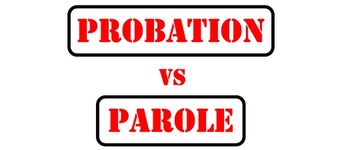

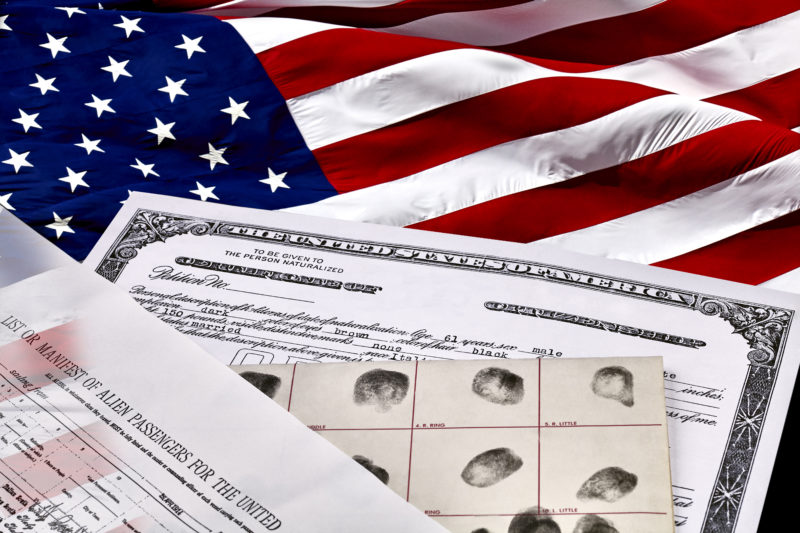


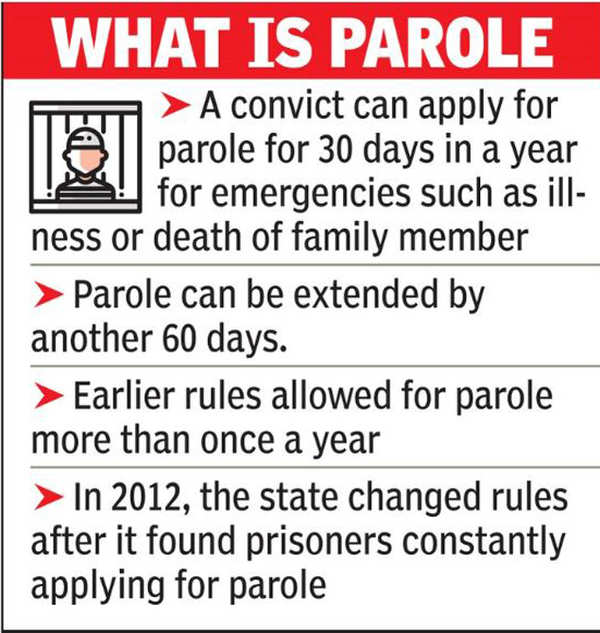



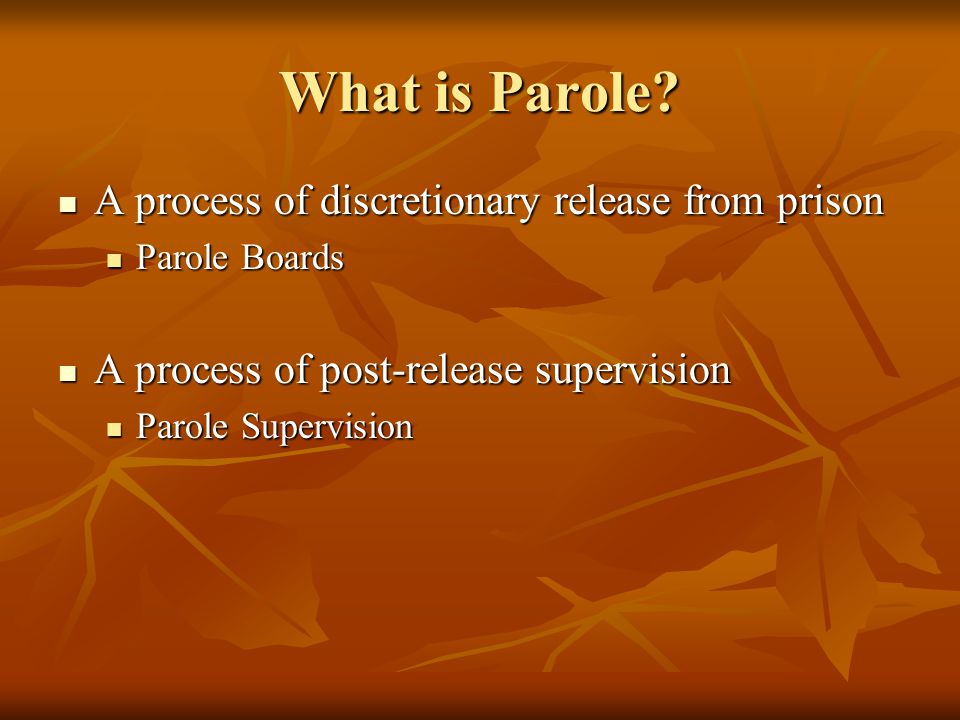


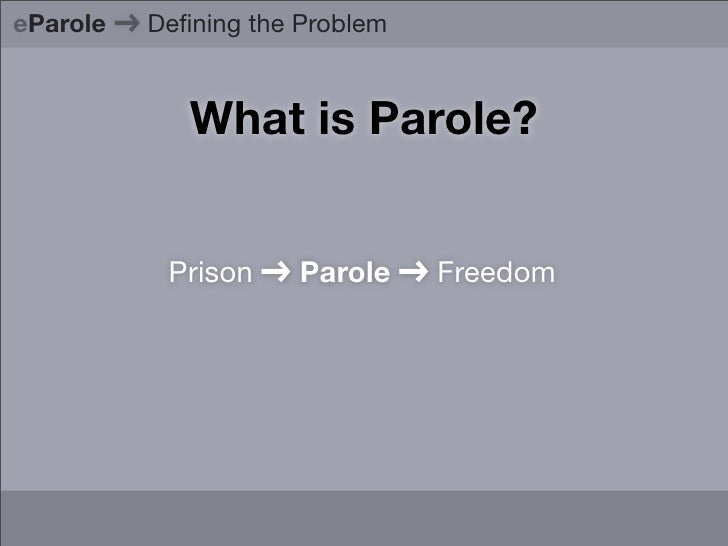






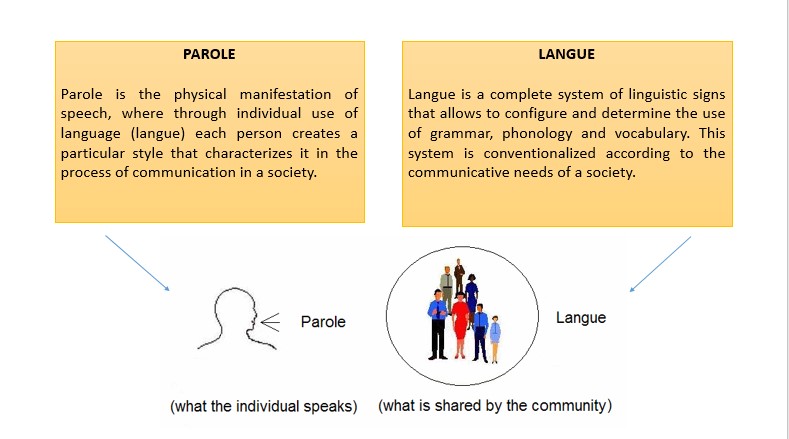
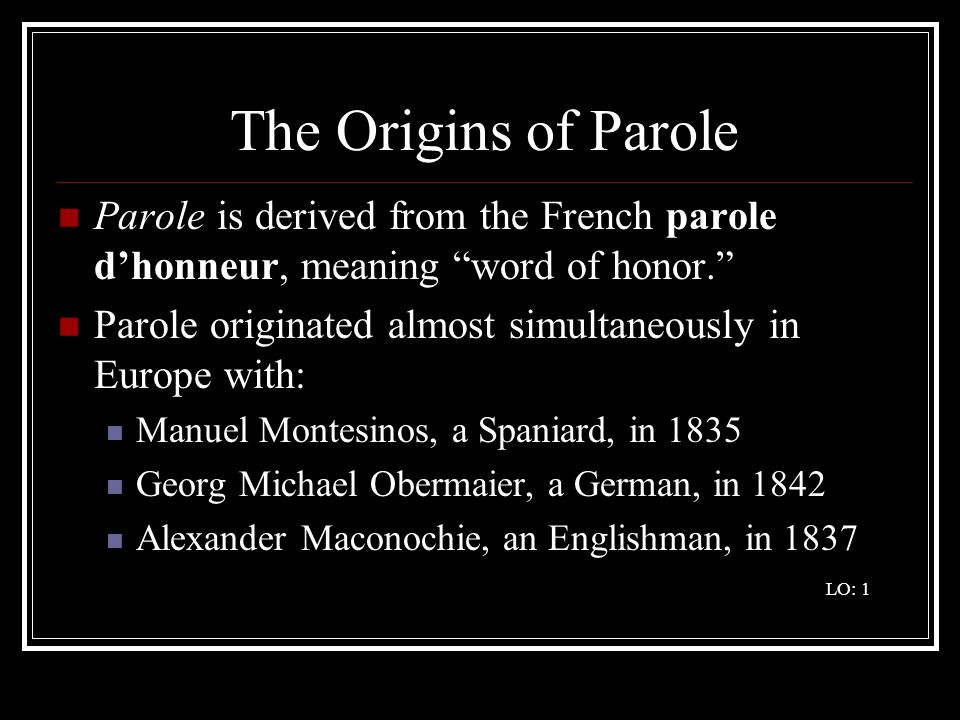

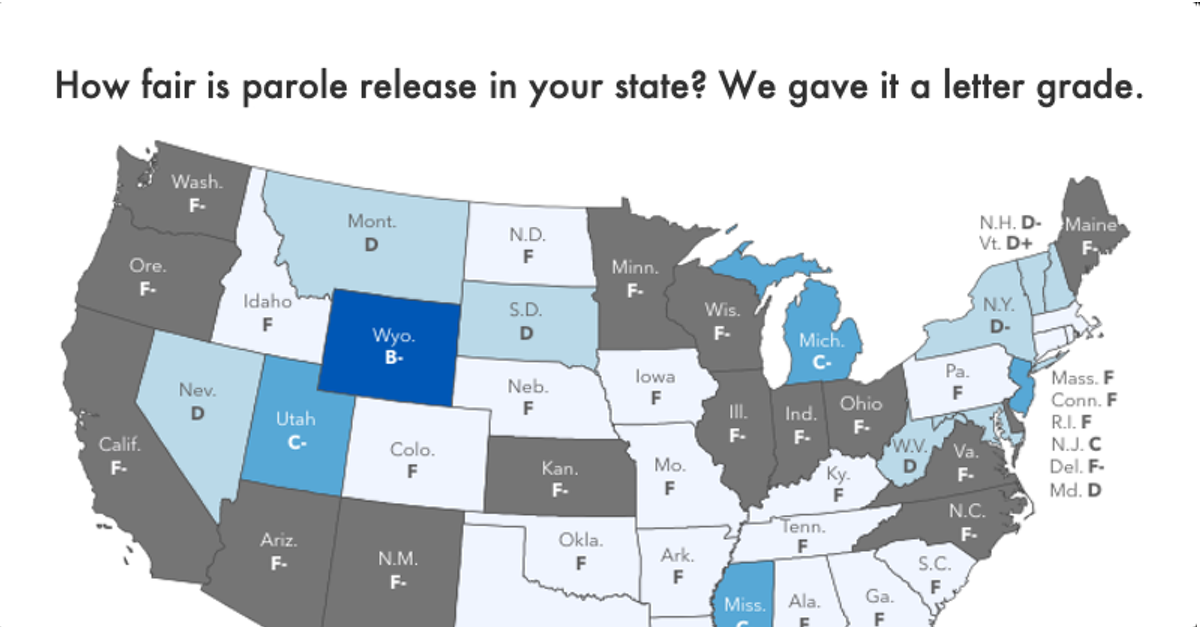
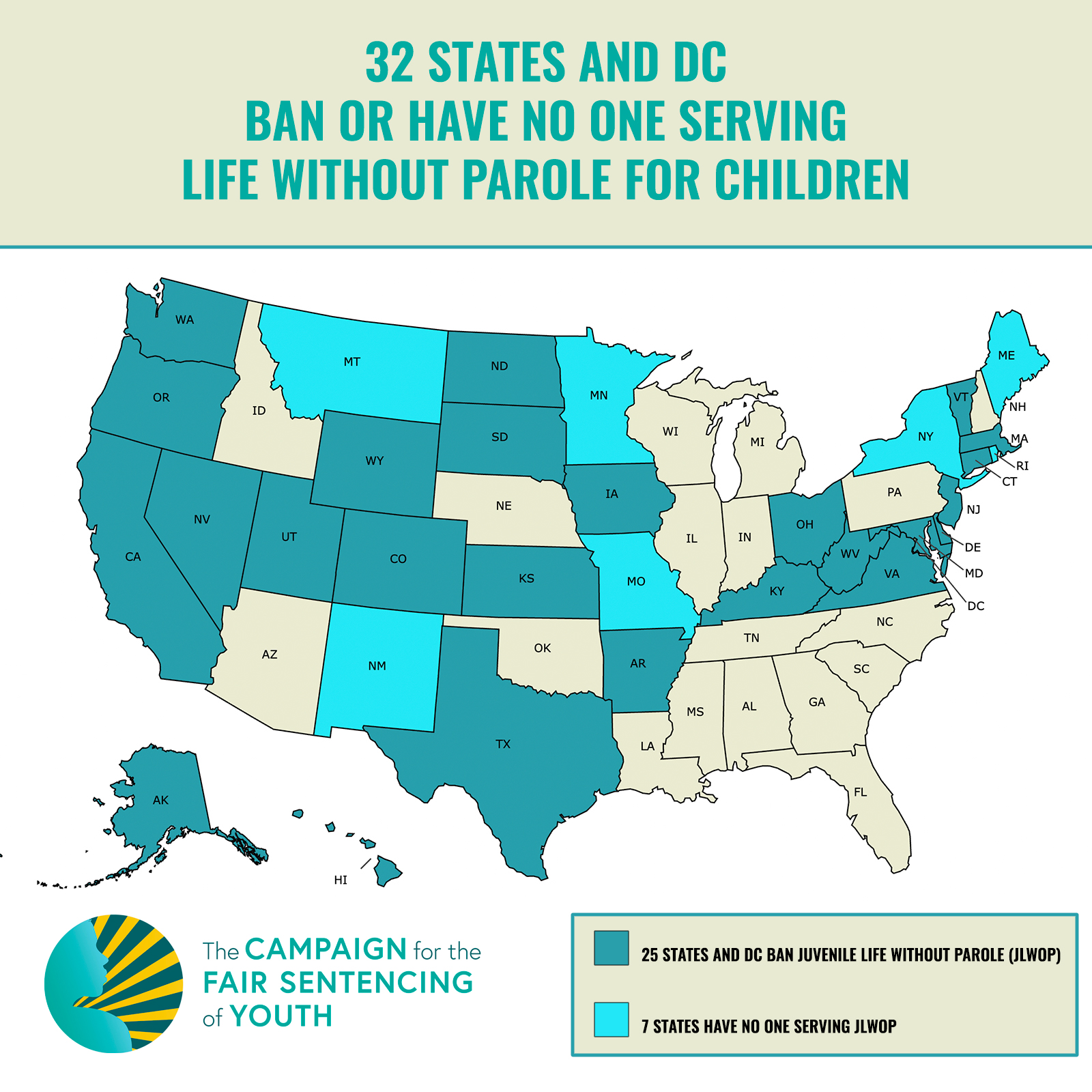
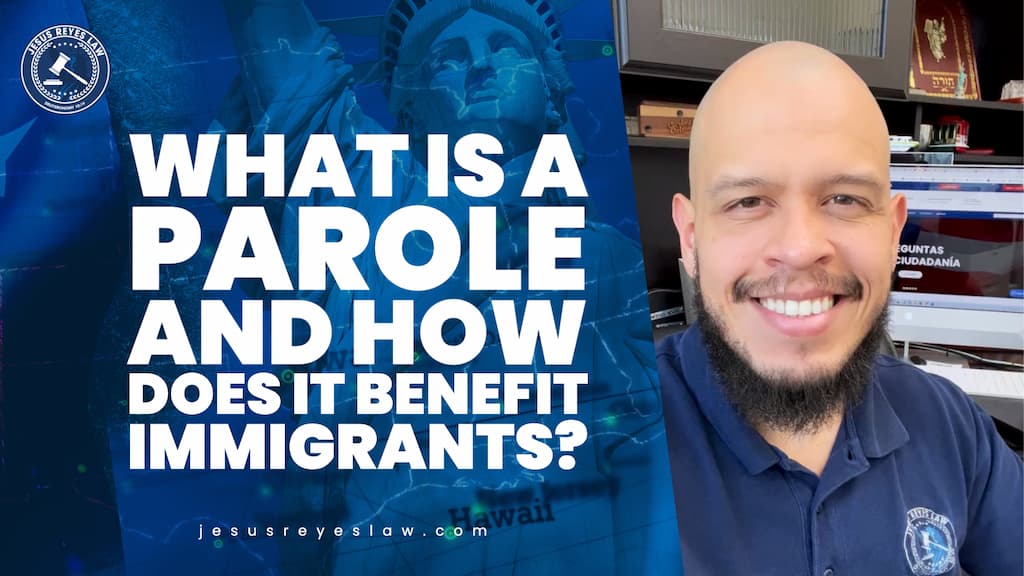



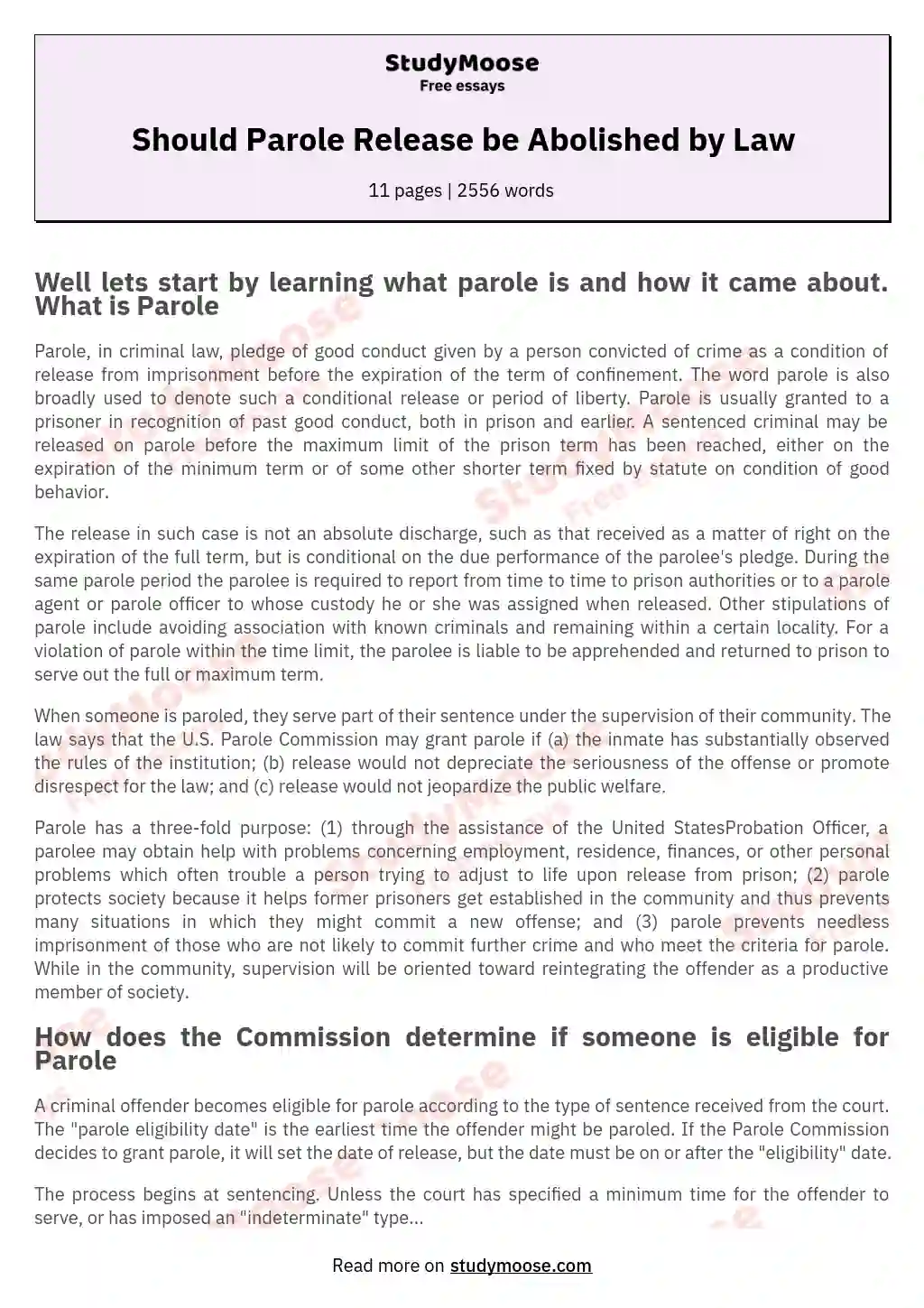
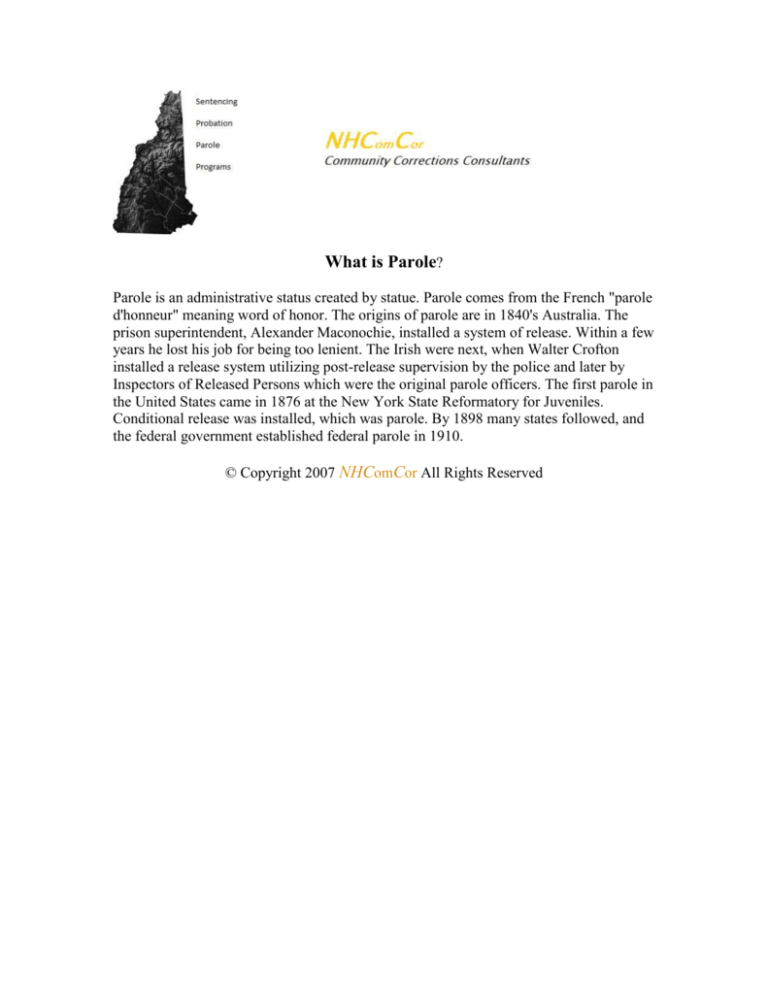


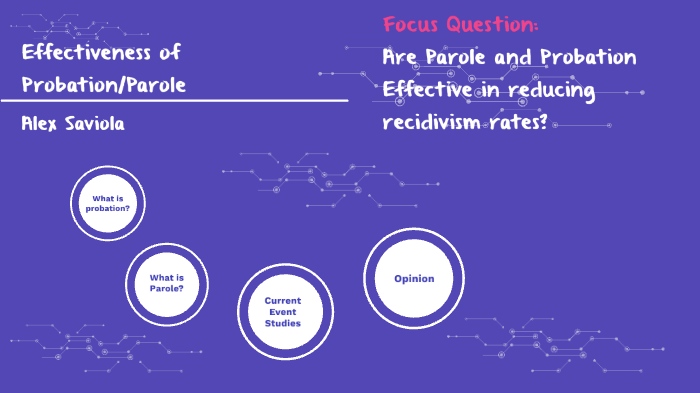


0 Response to "39 what is parole"
Post a Comment